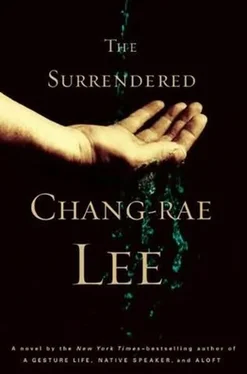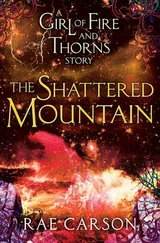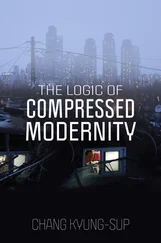She combed her own short hair and saw that hers was rife with lice, too, and her sister Hee-Soo offered to do it for her, and she let her. A few of the men lit cigarettes and others began talking. The conversations centered at the start on the rumored movements of the forces (the Americans were advancing quickly north now, the North Koreans reportedly retreating pell-mell), on which were the best refugee camps, on lost family members, but then soon enough turned to subjects like the rain, the recent trend of weather, if the pears and persimmons would be ready by now (if there was any remaining fruit on the trees, if there were any trees at all), the best remedies for certain body aches, all the blithe, everyday talk that might keep at bay for a moment the staggering reality of the dismantled world outside.
But then a man stood up and began berating everyone for their trivial concerns. He was in his early thirties, which was unusual because any other man his age would have been conscripted instantly into military service. He spoke with emotion and passion, and from his accent and verbiage one could tell he was well educated. Didn’t they care that atrocities were occurring daily, in every village and town in the river valley? Didn’t they care that they were being committed not just by soldiers from both sides but by their own people? He talked about the rampant lawlessness that had swept the land, the raping and maiming and summary executions. A white-haired man near June sharply replied that his accusations were unfair, for what could powerless people like themselves ever do? It was difficult enough just to get by, to simply survive.
“War brought a tide of blood,” the older man went on. “And it has swallowed everyone.”
“Yes, it has,” the man said. He had turned squarely to address the other man and June saw that one of his eyelids was shut and half sunken in the socket, the other eye wide open but clouded gray and aimed off-kilter.
“But it doesn’t mean we should so quickly give up our humanity. That we should be so indifferent. Yesterday on the road there was an old woman lying on her side. I can hardly see but it was obvious that she was suffering greatly. Some of you here must have passed by her, yes?” He seemed to pick out June but she couldn’t be sure. She had indeed seen the old woman. She was a wretched sight. She had soiled herself front and back and was wheezing heavily with desperate effort, as if a crab apple were lodged at the back of her mouth. It was difficult to know what was wrong with her but she had a terrible color. There was no family beside her, nor any possessions, or even a bag, only what she was wearing, as if she had been magically dropped there onto the road from some place far away. She was barefoot as well, her soles very pale and soft-looking, as though someone had just pulled off her shoes. Ji-Young was curious and slowed as they approached but they had nothing, nothing at all, to give her, and June had tugged her siblings’ hands and they had quickly walked on.
“All the woman asked for when my mother and I stopped was to have a drink. A sip of water. That’s all. She knew she was dying, and what a horror it must have been for her, to see that no one would even pause so she could have something so meager. Yet hundreds must have passed, before we came to her.”
“We have Mother Mary and Jesus here,” someone mumbled from the other end of the room. There were scattered snorts of laughter. The man crooked his head, his one eye widening, craning about.
“I am talking about decency. About something as basic as that. We could offer her only the smallest comfort. She died shortly thereafter but, my God, she was alone and afraid and in misery. Who in this room would ever wish anyone an end like that?”
“So did you resurrect her?”
More laughter, this time full-throated and resonant. The man was about to respond but he went silent, his mother pulling hard on his arm to make him sit down, which he did. His eye was half closed now and his head and neck slightly shuddered, as though he were having the mildest seizure. The small talk resumed and soon enough it was as if the man had never stood up and said anything. The moment had already passed and disappeared. They were all chronically weary and hungry and whenever off their feet and safely sheltered the time paradoxically seemed to accelerate, the periods of rest never long enough, never satisfying, their bodies ready for complete repose but their thoughts restlessly spinning out memories they did not wish to see. Hee-Soo and Ji-Young lay nested together against her lap, the weight of them almost unbearable on her crossed legs. But the dirt floor was damp and chilly and she was afraid they might get sick, and those sick on the road, she knew, only grew more ill and weak and then often enough fell out of sight. She gently patted them on the back in a slow rhythm, lowing cha-jahng , cha-jahng , as her mother would do when they had a nightmare or couldn’t sleep. The man and his mother sat leaning back-to-back, like many of the others trying to invite sleep, and June wondered whether he’d been in this condition his whole life or if he’d been blinded more recently, since the start of the war.
The rest of the night passed without incident. Despite the torture of having to sleep sitting up, people were accustomed to it, and it was mostly quiet. There were groans, and the anxious, nonsense mutterings of dreams, and then an outcry that would wake them all for a moment before they returned to their difficult slumbers. The half-blind man in fact cried out in the middle of the night, and for a long while afterward June couldn’t sleep, her mind bracing for another shout or cry. It was the racked voice that disturbed her most. Someone’s miserable song. Now, after all that had happened, she thought she could suffer seeing most anything, whatever cruelty or disaster, but the notes of a human plaint would make her wish she could exist without a heart.
She sensed movement in the dim predawn light. In the near corner an older middle-aged man was huffing and grimacing; he was one of those who had taunted the blind fellow. Everyone else was still asleep. She had heard his breath filtering fast through his teeth. He looked terribly pained and she was ready for him to wail for help when he closed his eyes and exhaled with a final rasp of his throat. His shoulders sagged. He was surely about to keel over, but instead he pushed aside the coat that covered his lap and a woman’s head rose up, her expression wan, completely blank. She was around June’s mother’s age and still quite pretty, despite the sallow, drawn flesh of her face. Without looking at her, the man gave her a few strips of dried fish and then almost immediately dozed off. The woman slipped the shreds into her shirt and turned away. She absently caressed the sleeping children beside her, two young boys and a girl, and it was as if nothing had occurred until she glanced up and met June’s gaze. June tried to look away. The woman stopped patting them, momentarily trapped in her shame, but then her eyes narrowed, hardening their focus, and they seemed to curse June through the darkness, as if to foretell of an ever-nearing future, an imminent fate.
With the new light of the day the others were arising, the room echoing with coughs and moans, and the several infants among them were already fretting, their bellies keen for milk. Hee-Soo and Ji-Young were awake now and they were softly whining, too, as they did every morning when they knew there would be nothing on hand to eat. If she had her own milk (if she even had a woman’s breasts) she would have surely tried to feed them, but she shushed them, not for the sake of those still sleeping but to keep their thoughts from dwelling on the hunger. Her mother had kept telling them to think only of what lay over the next hill, in the next valley, the coming turn in the road, and though it never quelled a grain of the ache, her command seemed to quicken their pace ever so slightly, make them cover that much more ground on their southward journey to Pusan. From the beginning of their wartime life, their mother was shepherding them constantly forward, no matter the topography, no matter the weather. It was brutally torrid those first few weeks, the July sky a stifling blanket of haze; then the clouds would rend and the road would become a stalled river of mud. The flies and mosquitoes sang furiously in their ears. They’d trudge ahead anyway with their minds in arrest, in the suspension of any future save the one in which they persisted, kept on. Their movement was more inertia than propulsion. A necessary tendency. And yet one did whatever one could. One morning, when her mother was alive, June saw her mother emerge from the cab of an ROK army truck and then turn and accept several pouches of food from the driver. They were dried red beans. As she walked back, June pretended to be asleep, only rising with her siblings when her mother began to cook the beans. Nobody asked where they had come from. They ate them for breakfast, had bolted them down in fact, June filling her gullet so fast she’d actually choked for a few seconds, her eyes tearing as her mother gently rapped her on the back, saying, “Slow down, dear. There’s plenty now.”
Читать дальше











